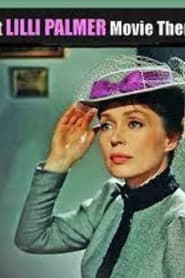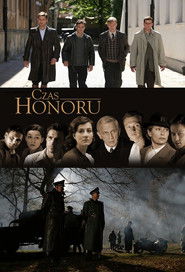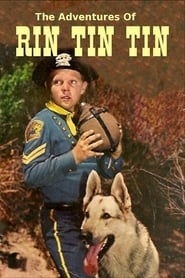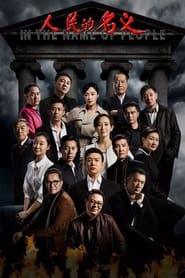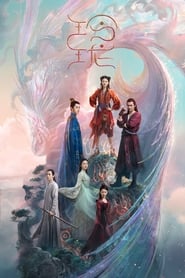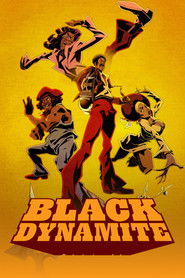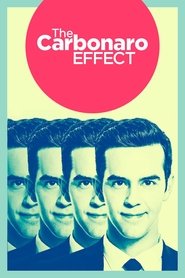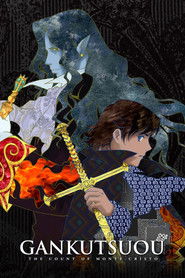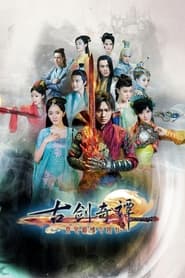Popular TV Series on Tub Tv - Page 440
-
Madres: amor y vida
2020
-
Los Reyes
2005
Los Reyes
2005
star 8.4Los Reyes is a telenovela filmed in Colombia and produced by the Colombian network, RCN. It debuted in 2005 and is available via RCN cable TV in the United States. -
Lilli Palmer Theatre
1955
-
Days of Honor
2008
Days of Honor
2008
star 6.8Days of honor is a Polish World War II television drama series, broadcast on TVP2 since September 7, 2008. -
Fall in Love with a Scientist
2021
star 5A love story of scientist Yang Lanhang and Bai Lingling, both in the virtual and real worlds. After meeting online in their youth, Yang returns to China to become a doctoral student at T University, where he unexpectedly reunites with Bai, the online friend he's long admired. After disrupting her thesis defense, he works to make amends by continuing their online friendship and bringing her into his lab. As they grow closer and resolve misunderstandings, they face challenges together and develop a deep connection. -
The Adventures of Rin Tin Tin
1954
star 6.9The Adventures of Rin Tin Tin is an American children's television program. Beginning in October 1954 until May 1959, 166 episodes originally aired on ABC television network. It starred child actor Lee Aaker as Rusty, a boy orphaned in an Indian raid, who was being raised by the soldiers at a US Cavalry post known as Fort Apache. He and his German shepherd dog, Rin Tin Tin, helped the soldiers to establish order in the American West. Texas-born actor James Brown appeared as Lieutenant Ripley "Rip" Masters. Co-stars included veteran actor Joe Sawyer and actor Rand Brooks from Gone with the Wind fame. -
In the Name of People
2017
star 8.5In the fictional city of Jingzhou, prosecutor Tian Guofu and anti-corruption officer Sha Ruijin investigate high-level corruption, uncovering a complex web of political intrigue and power struggles. As they pursue justice, they face immense challenges, navigating a dangerous landscape where loyalty, ambition, and morality collide. -
The Blessed Girl
2021
The Blessed Girl
2021
star 7.6In a mysterious and unknown continent named "Suchuan", there are many beautiful legends of mythology. A catastrophe caused the gods to fall, and Suchuan was thrown into chaos. After many years, the young monarch Yuan Yi ascends to the throne and vows to end the troubled times. Yuan Yi believed that the source of chaos was the falling of the gods. He fled the imperial city and found a girl named Ling Long, who possesses a strong spiritual power of the god. Ling Long and her father, Chi Xin, lived in a remote village. Although Ling Long lost her mother since young, she is independent and outstanding. At the request of Yuan Yi, Chi Xin left the village with Ling Long and Yuan Yi and embarked on an adventure to save Suchuan. Evil can never rival justice, and the trio finally defeated the power of evil and led Suchuan to a beautiful new era. -
The Brainiacs
2015
The Brainiacs
2015
star 8Traditionally, the cast is given clues to guess the identity of the episode's guests, and once the guests appear and are introduced, they and the cast are given a set of puzzles to solve. -
Ça finit bien la semaine
2010
A unique all-access pass to your favourite Quebec stars in a friendly, timely and entertaining format that matches the hosts’ personalities. -
Black Dynamite
2012
Black Dynamite
2012
star 7.6Black Dynamite is an American animated television series based on the 2009 film of the same name, although the series follows a separate continuity, with some back-references to the film. The series was announced shortly after the release of the film, the 10-minute pilot episode was released on Adult Swim Video on August 8, 2011, and the full series premiered on Cartoon Network's late night programming block, Adult Swim, on July 15, 2012. Michael Jai White, Byron Minns, Tommy Davidson and Kym Whitley reprise their film roles as Black Dynamite, Bullhorn, Cream Corn and Honeybee, respectively. -
The Carbonaro Effect
2014
The Carbonaro Effect
2014
star 7.5Michael Carbonaro is a magician by trade, but a prankster by heart. Michael performs baffling tricks on unsuspecting people in everyday situations, all caught on hidden camera. Everyone is left stunned and delighted, even though they have no idea what just hit them. -
HAPPY!
2017
HAPPY!
2017
star 7.4Corrupt ex-cop turned hitman Nick Sax's life is changed forever by a relentlessly positive, imaginary blue winged horse named Happy. -
State of the Union
2019
State of the Union
2019
star 7Tom and Louise meet in a pub immediately before their weekly marital therapy session. With each successive episode we piece together how their lives were, what drew them together and what has started to pull them apart. -
The Nineties
2017
The Nineties
2017
star 6.9Hit rewind and explore the most iconic moments and influential people of The Nineties, the decade that gave us the Internet, DVDs, and other cultural and political milestones. -
Gankutsuou
2004
Gankutsuou
2004
star 7.2In an elegant future Paris, a Count returns to wreak havoc on those that betrayed him. -
Swords of Legends
2014
Swords of Legends
2014
star 6.6Set during the Tang Dynasty, a young and quiet swordsman name Baili Tusu is infected by the aura of an ancient demonic sword known as the Sword of Burning Solitude. Living with the dark energy, he grew up without family. Until one day, he meets a friendly girl Feng Qingxue along with a group of heroes, and together they wander the land to seek out destiny and bring balance to the world. -
Drive
2007
Drive
2007
star 6.1An American action drama television series set against the backdrop of an illegal cross-country automobile road race, focusing on the willing and unwilling competitors and, as the plot develops, the unseen puppet masters who sponsor the race. -
Camp Wilder
1992
Camp Wilder
1992
star 4.5Camp Wilder is an American television sitcom which aired on ABC from September 18, 1992 until February 26, 1993. The premise centered on a young woman who opens up her home to the friends of her younger siblings, who sought it as judgment-free "hangout", and who regularly went to her for advice. The series was created by Matthew Carlson, and produced by a.k.a. Productions in association with Capital Cities Entertainment. The show aired as a part of ABC's popular TGIF lineup, but was cancelled after 19 episodes due to low ratings. A 20th episode was produced, but was never aired in the US. Camp Wilder was also shown in the UK and Germany, where it became a hit.
 Netflix
Netflix
 Amazon Prime Video
Amazon Prime Video
 Apple iTunes
Apple iTunes
 Apple TV Plus
Apple TV Plus
 Disney Plus
Disney Plus
 Google Play Movies
Google Play Movies
 Paramount Plus
Paramount Plus
 Hulu
Hulu
 HBO Max
HBO Max
 YouTube
YouTube
 fuboTV
fuboTV
 Peacock
Peacock
 Peacock Premium
Peacock Premium
 Amazon Video
Amazon Video
 The Roku Channel
The Roku Channel
 AMC+
AMC+
 Kocowa
Kocowa
 Hoopla
Hoopla
 The CW
The CW
 Vudu
Vudu
 Starz
Starz
 Showtime
Showtime
 PBS
PBS
 Pantaflix
Pantaflix
 FXNow
FXNow
 Tubi TV
Tubi TV
 Kanopy
Kanopy
 Comedy Central
Comedy Central
 Crunchyroll
Crunchyroll
 Microsoft Store
Microsoft Store
 Redbox
Redbox
 Sun Nxt
Sun Nxt
 ABC
ABC
 DIRECTV
DIRECTV
 Crackle
Crackle
 Fandor
Fandor
 Plex
Plex


